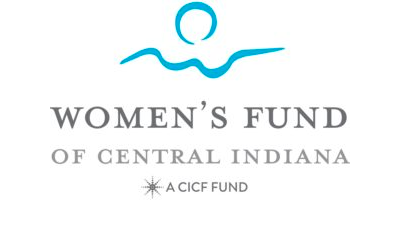Leaders from across Central Indiana recently gathered at Old National Bank’s Second Annual Nonprofit Summit to tackle some of the most pressing challenges facing the sector today, such as cuts to government funding, rising community need, and contentious policy around service to specified populations. A panel discussion featured Women’s Fund of Central Indiana’s President, Tamara Winfrey-Harris and CICF’s Chief Innovation Officer, Jeff Bennett. The panel was moderated by Rafael Sanchez, executive vice president, chief impact officer and Indianapolis Market president, Old National. Brooke Dunn, Counsel, Faegre Drinker and Chris Kaufman, President, IHSAA Foundation also served as panelists. It offered a roadmap for resilience through nonprofit collaboration, innovation, and mission focus.
One theme echoed throughout the panel: nonprofits must think creatively about funding.
Leaders urged organizations to explore under-utilized revenue streams, from fee-for-service models to leasing idle space. They also encouraged using publicly available data, like peer organization tax filings, to identify new funding opportunities. At the same time, operational efficiency (cutting unnecessary expenses while leaning into core strengths) remains a critical tool for weathering lean times.
Collaboration was another strong message.
In a landscape where funding is increasingly competitive, Bennett and Winfrey-Harris stressed that partnerships can actually unleash more resources and expand impact.
Bennett pointed to the merger between Goodwill and Horizon House as an example of how even major organizations can pool expertise to better serve their communities. Such collaborations are even drawing dedicated funder support.
The conversation also addressed the under-discussed topic of leadership burnout and talent loss due to new challenges in the nonprofit sector. Many organizations are operating with fewer staff while facing mounting demands.
Both speakers pointed to the need for better leadership support systems.
In response, CICF is launching an 11-month cohort in partnership with the Lilly School of Philanthropy to nurture first-time nonprofit CEOs, while the Women’s Fund is piloting an accelerated fundraising training for smaller organizations. These programs are designed not only to develop skills, but also to create networks and camaraderie that combat burnout.
Data and reporting expectations were another recurring topic. Winfrey-Harris acknowledged that smaller organizations often lack the capacity to collect and analyze extensive metrics.
Her approach: leverage existing data and push for sector-wide alignment on reporting requirements to reduce the administrative burden.
Bennett shared that the CICF Collaborative recently redesigned its grant application process, incorporating staff feedback to make expectations clearer from the start. Looking ahead, he envisions pre-populated applications and dreams of a shared funding portal to further simplify the process.
Through it all, Bennett emphasized that CICF’s mission—to build a community of opportunity, no matter place, race, or identity—remains unchanged, even as strategies evolve. For both leaders, the path forward is about resilience: staying true to core values, building strong networks, and finding new ways to thrive in a challenging environment.
In an era of uncertainty, their message was clear; Central Indiana’s nonprofit community has the creativity, commitment, and collaborative spirit to lead.
Women’s Fund of Central Indiana and CICF are part of the CICF Collaborative, a partnership of philanthropic organizations working together to strengthen communities across the region. Each entity within the CICF Collaborative brings deep knowledge, strong relationships, and its own individual, focused mission. The CICF Collaborative unities the entities by providing shared services, allowing the entities to operate more efficiently and effectively. By leveraging what we each do best, we’re able to better serve our communities and create more lasting impact, together. Learn more »
